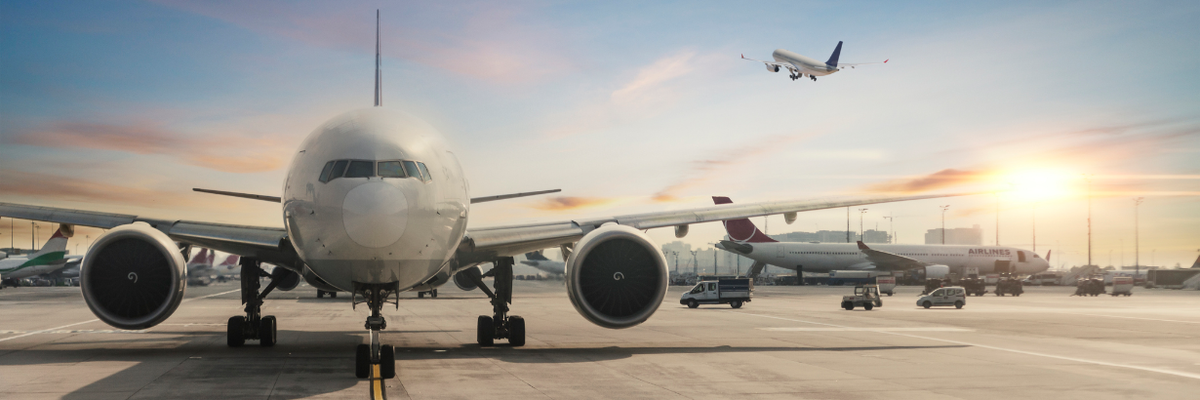The Court of Appeal has thrown an enormous spanner in the works of the planned building of a third runway at Heathrow Airport in London. It says the government’s decision to give the expansion the go-ahead was unlawful because it didn’t take into account its own commitments to tackle climate change. The government is declining to appeal against the judgment in the Supreme Court, although Heathrow airport itself intends to do so and says it’s confident of success. But the government is still saying it backs airport expansion in general so that if Heathrow’s third runway bites the dust it will be looking for alternatives. Climate campaigners, however, say that all airport expansion should be stopped and that we need to curb our addiction to flying because nothing else is compatible with fighting climate change. So what should happen now?
The decision to build Heathrow airport in the western suburbs of London was taken at the end of the Second World War at a meeting which was said to have lasted only about forty minutes. No one then foresaw the huge increase in the demand for air travel which would soon render the airport too small to satisfy it. Already in the 1960s there was talk of the need for expansion but even then the environmental cost to the growing population of west London rendered the idea politically controversial. And that was long before anyone was talking about climate change and the substantial contribution that aviation makes to global-warming. The result was to kick the expansion idea into the long grass for decades.
Finally, under the pressure of the perceived need to facilitate national economic growth, the last Labour government authorised the building of a third runway at Heathrow. This decision was then overturned by the coalition government in 2010. An independent Airport Commission subsequently revived the plan as the best way to deal with London’s airport constraints and the Conservative government adopted the third runway as its policy in 2016. It was backed by MPs by 415 to 119 votes in 2018.
The third runway is designed to increase the number of flights out of Heathrow from the 473,000 recorded in 2019 to 756,000 a year when it is up and running. They will serve 142 million passengers annually. The runway will occupy 950 acres, involve the demolition of 761 houses and will cost around £14bn, paid for by the private company that owns Heathrow.
That at least was the plan until Thursday morning. But in judgment over a case brought by environmental campaigners and the Mayor of London, Sadiq Khan, the Court of Appeal ruled that it was ‘legally fatal’ to the Heathrow expansion policy that the government had not taken into account its commitments, embodied in law in the Climate Change Act, to ensure that Britain achieved a target of zero net emissions of greenhouse gases by 2050. Friends of the Earth hailed the judgment as ‘an absolutely ground-breaking result for climate justice’. Its implications go far beyond the issue of airport expansion and could well have an impact on other major infrastructure projects.
The government’s response has been to say ‘Nothing to do with us, guv’. Specifically, it has said it does not intend to challenge the ruling in the Supreme Court, arguing that since the expansion is a private company affair, it’s up to the private company (Heathrow airport) to make any challenge (which it says it will do).
The government’s washing of its hands of the matter may seem a little odd when the third runway has been such a major (and toxic) political issue for governments for so long. It may not be unrelated to the fact that Boris Johnson, when he was Mayor of London, pledged to lie down in front of the bulldozers if ever Heathrow expansion went ahead. It was a pledge he repeated when he became MP for a much-affected west London constituency en route to becoming prime minister. Of course Mr Johnson seems more than ready to break promises (it seems odd to be able to write that about a prime minister, still odder to know that it won’t be seriously challenged), but it may seem more convenient to him to stay out of the fray and let the third runway die without his having to face the bulldozers.
Heathrow airport itself is confident that it will win the challenge in the Supreme Court, in which case the political problem of the third runway will be once again in the Prime Minister’s in-tray. But whether the third runway proceeds or not, the wider issue of the compatibility of airport expansion and climate change policy will remain a major political issue and one in which the courts may well continue to have to intervene.
That’s because the government has said it is still wholly in favour of airport expansion. Its concept of ‘Global Britain’ emerging from Brexit, a country doing even more trade with the rest of the world, depends on expanding airport capacity. The Transport Secretary, Grant Shapps, said after Thursday’s ruling: ‘Airport expansion is core to boosting connectivity’. The boss of Heathrow, John Holland-Kay, was even more specific. He said: ‘There’s no Global Britain without Heathrow expansion – it’s as simple as that. If we don’t expand our only hub airport, then we’re going to be flying through Paris to get to global markets.’
Of course the government may try (or be forced to try) to achieve its Global Britain ambitions without expanding Heathrow, by looking again at the option of expanding Gatwick or even reviving Mr Johnson’s old idea of a wholly new airport in the Thames estuary. But although such options might overcome problems that are especially acute at Heathrow (air quality and noise in such a built-up area), the incompatibility with climate change policy will remain for the simple reason that any airport expansion facilitates more flying, and more flying means more greenhouse gases.
Backers of airport expansion argue that new technology will come to the rescue – hybrid planes, for example, less dependent on carbon-emitting fuel. But according to Roger Harrabin, the BBC’s environmental analyst, there is currently ‘no viable technical fix to make planes zero-carbon and carbon off-setting schemes proposed by the aviation industry are contentious.’
Among such schemes is the idea of planting carbon-capturing trees to offset the carbon released by flying. But according to Tony Kirkham, an eminent tree scientist at the Royal Botanical Gardens, Kew, the idea doesn’t stand up. It takes at least ten years for newly-planted trees such as oaks or elms to mature to the point at which they start to ‘bank’ carbon and it will take a hundred years for them to absorb twenty tons of the stuff. Furthermore, around half the trees planted in such carbon-offset schemes die within five years because they are not properly looked after.
In short, then it would seem that the only way to make sure that aviation policy is compatible with our legal commitments to achieve net zero carbon emissions by 2050 is to make us all fly less. Or at least stop us flying unless we absolutely need to. We must also end our addiction to foreign goods and foreign foods delivered to us by air freight. We should abandon notions of becoming Global Britain and concentrate on saving the planet.
What’s it to be? Let us know what you think.
Image: Getty









